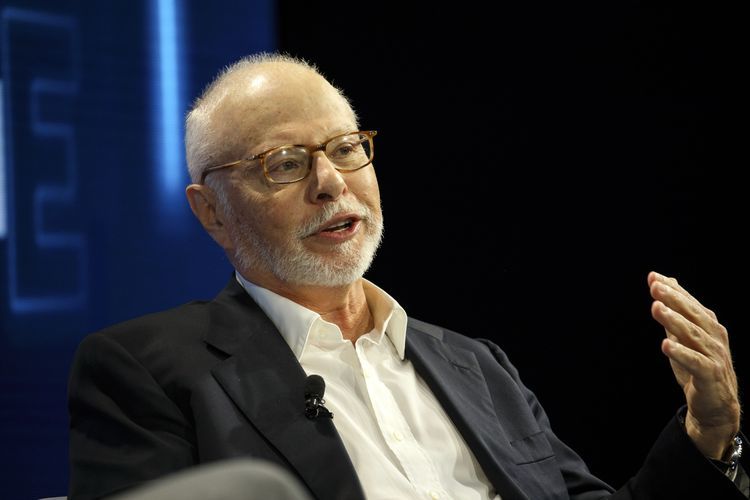
BHP Billiton rejected a proposal by billionaire Paul Elliott Singer’s hedge fund to overhaul its business, setting up further clashes between the world’s largest miner and an investor with a record of protracted disputes with companies.
New York-based Elliott Management Corp., which owns 4.1 percent stake in BHP, urged the company to spin off U.S. oil assets the fund valued at $22 billion. It also wants the company to combine its two legal entities listed in Sydney and London into one group headquartered in Australia and traded in the U.K., according to a letter it made public Monday. BHP responded by saying it’s been in talks with Elliott for months, and the costs and risks associated with the proposals outweigh the benefits.
“This letter is saying, maybe indirectly, that ‘you guys aren’t managing the company properly,”’ said Wayne McCurrie, a fund manager in Johannesburg at Ashburton Investment Management Co., which owns BHP shares. “Management is entitled to be a bit defensive. They’ve been put in their positions as experts to run the company for many different investors.”
While BHP is under no obligation to act, the company is the latest to be targeted by a hedge fund or similar “activist” shareholder. Elliott is also trying to force a shift in strategy at Arconic Inc., Samsung Electronics Co., Marathon Petroleum Corp. and NRG Energy Inc. At Arconic, it’s aiming to oust Chief Executive Officer Klaus Kleinfeld and replace four directors.
Shares in Melbourne-based BHP surged as much as 5.8 percent in London and closed 4.6 percent higher in Sydney, suggesting some investors reckon Elliott’s effort will bear some fruit.
“They play a useful role in terms of putting pressure on management, pushing agendas,” John Stopford, head of multi-asset income at Investec Asset Management, said in an interview on Bloomberg Television on Monday. “Obviously, to some extent, it’s self-serving so I’m sure they are benefiting quite nicely from the bounce we are seeing in BHP Billiton’s share price.”
Shareholder Value?
Elliott, referring to talks already held with BHP management, said the changes it put forward could boost shareholder value by about 50 percent. The hedge fund wants BHP to return money to investors through buybacks that would maximize tax credits and discourage expensive cash acquisitions in favor of using shares.
BHP lowered its dividend for the first time in 15 years in February 2016 amid weaker commodities prices and scrapped a guarantee of continually rising returns. The company switched to a policy to provide payouts at a minimum of 50 percent of underlying attributable profit.
“Despite the first-class quality of most of BHP’s assets, BHP as an investment has underperformed,” Elliott, which manages about $33 billion, said in the letter to the company’s board. Most of that underperformance “has been driven by the incomplete status of management’s streamlining and value-optimization of BHP’s group structure and asset portfolio,” it said.
BHP said it returned $23 billion in share buybacks since the dual-listed structure was formed in 2001 and paid out $56 billion of dividends. The proposal of a primary listing in London would require the approval of Australia’s Foreign Investment Review Board, it said.
Protected Structure
BHP Chairman Jacques Nasser in November 2015 defended the company’s structure as two listed firms, warning the costs of changing the setup would likely be high. Under terms of the 2001 merger of BHP Ltd. and Billiton Plc that created the group, holders of London or Sydney-listed shares receive equal cash dividends.
They remain separate legal entities, with BHP Billiton Ltd. trading in Australia and BHP Billiton Plc listed in London. It has previously said a London vehicle offers better access to global capital markets.
Revising BHP’s structure “probably has some merit,” but wouldn’t be easy, said Andy Forster, senior investment officer at Argo Investments Ltd., which manages more than A$5 billion ($3.7 billion) and holds BHP’s Sydney-listed shares. “The argument about access to capital markets is probably not quite as valid as it used to be.”
Oil Assets
A spinoff of U.S. oil assets would contradict the BHP’s recent focus on growth in that division, he said. The company is unlikely to carry out any radical changes before the appointment of a new chairman to replace Nasser, who said he’ll step down later this year, Forster said.
Elliott said BHP “took an important first step towards streamlining” with the 2015 spinoff of South32 Ltd., which included smaller operations across different commodities and focused BHP around key assets in iron ore, coal, copper and oil. The creation of Perth-based South32 reduced BHP’s portfolio from about 40 operations to 19 core assets.
BHP, the largest overseas investor in U.S. shale, should seek a separate listing of its U.S. onshore petroleum and offshore Gulf of Mexico assets on the New York Stock Exchange to realize their growth potential, said the hedge fund.
Recommended for you
